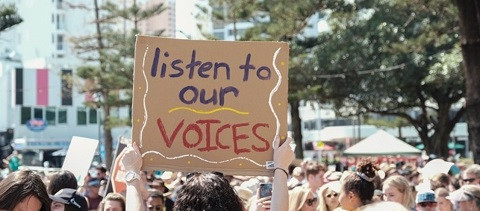
GCED Basic Search Form
Quick Search
当前位置
新闻

A joint UNESCO-UNODC partnership working to promote the rule of law through education is launching a series of virtual regional dialogues to bring young people together with policymakers to hear what they want from education and justice systems in the post COVID-19 future.
The pandemic has not only severely disrupted schooling, but has also fractured important connections between young people and education institutions. The impact has been hardest on vulnerable and marginalized young people, especially girls, for whom school offers not only a space for learning but also protection and nutrition.
The dialogues will focus on Central America, South Asia and Europe and the Middle East and North Africa and will seize the opportunity for change offered by the pandemic to build discussion among young people, policy-makers, educators and representatives from education and justice sectors to engage them in building back better.
Each one will be grounded in UNESCO's response to the pandemic which includes the Learning Never Stops and Futures of Education initiatives while reflecting regional contexts and needs.
The opening event, Regional Dialogue on Citizenship Education Policies on 17 September, will focus on member countries grouped under the educative coordination body CECC-SICA (Belize, Costa Rica, Dominican Republic, El Salvador, Guatemala, Honduras, Nicaragua and Panama).
The first part will take stock of how Global Citizenship Education and Education for Justice are implemented in each of the countries from the perspective of Ministries of Education and youth.
The second part in the latter half of October will promote discussions among Member States on recommendations for an emergency curriculum for the region and will include input from youth, teachers and civil society leaders.
The next regional dialogue, to be held during the last week of October, will focus on South Asia where the pandemic has worsened the existing education crisis. Before it, the region already had 95 million out of school children. With the crisis still unfolding, many of the 430 million children affected by school closures in the region are in danger of dropping out of the education system. UNICEF has reported that in South Asia, COVID-19 might also push nearly 120 million children into poverty.
A further dialogue is planned from 23-25 November in association with the Council of Europe and will draw on research and a survey on teachers' assessments of how student voice and participation were affected by COVID-19.
Recommendations from the dialogues will feed into the 14th United Nations Crime Congress on Crime Prevention and Criminal Justice to be held in March 2021, among other events.
The UNESCO-UNODC Partnership on Global Citizenship on Education for the Rule of Law, aims to empower children and youth to understand and exercise their rights, think critically, make sound ethical judgments, and build just societies. It forms part of UNESCO's GCED and UNODC's E4J work which, among others, has produced a policy guide and education materials for primary and secondary schools.
Access the Regional Dialogue (on 17 September at 9-11:30 am Costa Rica, 12-2.30 pm Santiago, 5pm-7:30 pm Paris)
- Zoom - Code: 745647
- YouTube broadcast
URL:
